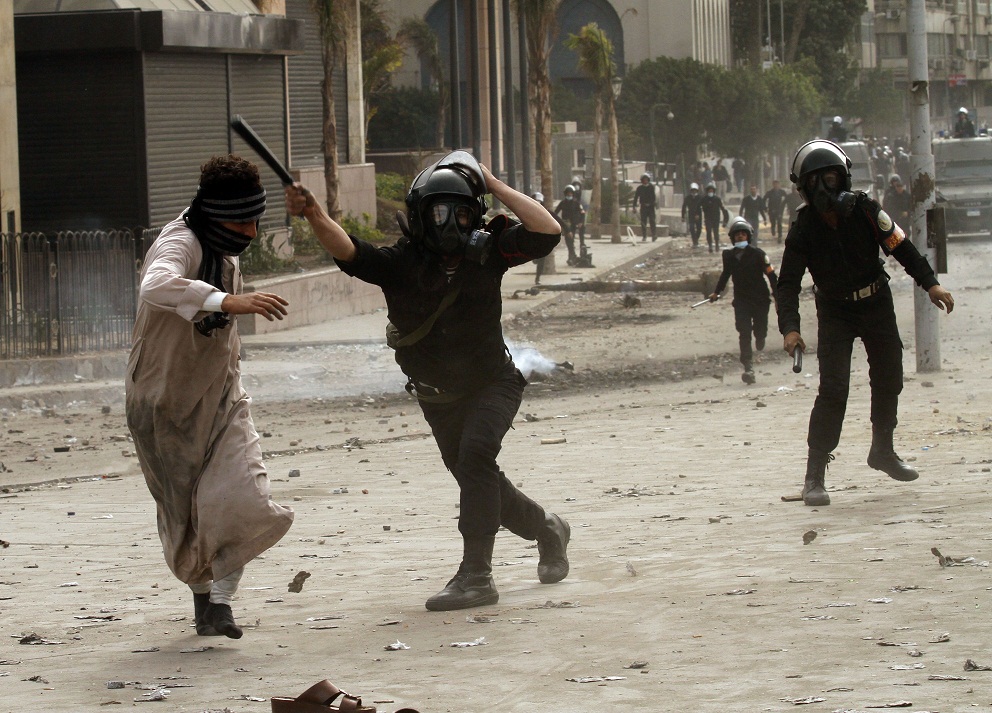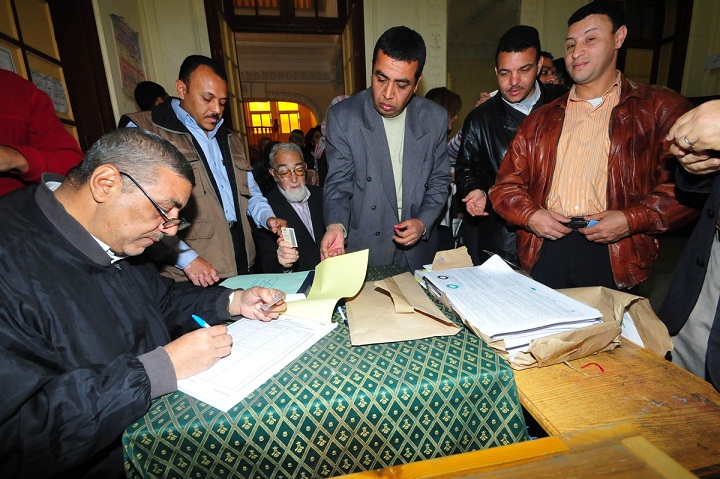
The Cabinet approved a new draft law to regulate public demonstrations on Wednesday. The new law, yet to be approved by the Shura Council, has been met with criticism from a wide range of human rights groups.
The law, according to the government, is meant to ensure that demonstrations remain peaceful. However, the provisions within the law suggest that it restricts civilians’ right to demonstrate and seeks to justify police crackdowns on protesters.
According to a statement released on Wednesday by the Justice Minister Ahmed Mekki the law serves “to protect the right (to demonstrate) and prevents mixing peaceful protests, which the state vows to protect, and attacks on people and property as well as disrupting public order”. Protest organisers must notify authorities of any plans they have in advance, and the Ministry of Interior has the right to reject such requests.
State-run news agency MENA reported that protests will be restricted to specific areas within each province, to be decided by the local governor.
The Association for Freedom of Thought and Expression (AFTE) released a highly critical statement on Wednesday, saying the law violates “all principles of the freedom of expression and the right to peaceful gatherings, in addition to its violation of the minimum standards required by any legislation organising the exercise of rights and freedoms in a democratic country”.
The first article of the law stipulates the right to demonstrate and supports freedom of expression in all its forms. Despite the first article, AFTE criticised the law, saying “all subsequent articles restrict those rights by regulations that deprive the rights of any substance and use the permits granted by the constitution to the legislator as a means to restrict those rights”.
AFTE also highlighted the most restrictive provisions of the draft law, namely Articles 11 and 15. These articles ban the use of stages, tents, banners, and chanting “or singing anything that might constitute public slander, defamation of religion, incitement of strife, violence and hatred or include any insult to any of the state institutions going beyond peaceful expression”.
AFTE recommended the criminalisation of “any form of force against protesters that might violate their right to health, physical safety and life, as well as a clear delineation of the role of security forces in securing lives and property without intervening in the subject matter of the protest”.
Heba Morayef, the director of Human Rights Watch in Egypt, also lashed out at the new law, describing the restrictions placed on the right to demonstrate by Law 10 (1914) and Law 14 (1923) as “bad enough as it is, why add further restrictions?”
Articles One and Two of the 1914 law criminalise any gathering of five or more people that “endangers public peace,” “obstructs the implementation of laws and statutes,” or “influences authorities carrying out their duties”.
The 1923 law requires citizens to notify police prior to holding a gathering, and allows police to prevent a gathering from taking place and to dissolve a gathering once it is convened.
